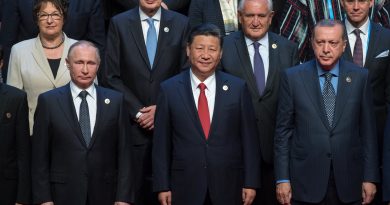The Vice-Presidential Debate Voters Were Not Expecting
Andrea Gonzalez
Sports, Business & Culture Editor
On October 1, Governor Tim Walz of Minnesota and Senator JD Vance of Ohio faced each other during the Vice-Presidential Debate, which brought a rare moment of depth to current political discourse. The candidates did not trade insults and deliberately engaged in policy-centered arguments, highlighting each ticket’s utterly opposite vision for the country, reports BBC.
The path has not been easy, as recent months have reshaped the election cycle, with President Biden dropping out and Donald Trump facing two assassination attempts.
Vance became known for lashing out against women who do not have children after a 2021 Fox interview with Tucker Carlson resurfaced. According to NPR, his confrontational style echoes former President Trump’s claims against ‘traditional sources of knowledge,’ which left many expecting a heated performance. Despite exposing his rough edges, Governor Tim Walz showed a steady hand aimed at undecided voters and those who share his background from rural America.
It began with a discussion of regional conflict in the Middle East, where the Israeli military continues to unleash war in Lebanonand Gaza. According to CBS News, Walz’s response addressed the need to end the humanitarian crisis and return the hostages while alluding to Kamala Harris’ “steady leadership” while a chaotic “Donald Trump talking about crowd sizes.” Vance responded with a stunning introduction of his background. He ensured that Trump delivered stability through “effective deterrence,” emphasizing that peace would come through strength and that if enemies “got out of line,” the United States would bring back stability.
Walz accused the Republican ticket of dehumanizing immigrant communities in Springfield, Ohio. Then things got tricky for Vance, as he protested when moderators clarified that the Haitian community in Springfield has legal status, and that Temporary Protected Status is a lawful path to immigration.
When asked about abortion, Walz embraced the stories of women facing the consequences of abortion bans in states across the country post-Roe v. Wade. The New York Times reports that Walz shared the story of Amanda Zurawski, who experienced complications during the eighteenth week of her pregnancy, nearly dying after she was sent home by doctors in Texas. Senator Vance recognized the failures of the Republican party on reproductive rights and expressed that “we’ve [The Republican Party] got to do a better job of winning back people’s trust” and then shared concepts of a plan to make the country more supportive of women starting families.
Senator Vance honed his skepticism and questioned experts from the economy to healthcare. Meanwhile, Governor Walz maintained his commitment to unity across the country and the need for leaders who rely on fact-based governance. One showed judgment against established systems versus an optimistic, pragmatic vision, unveiling a central theme of the election, a deep ideological divide among Americans.
Vance’s dismissal of the idea that economists and experts should be trusted was a moment that defined the conversation. Instead, voters should favor the conventional wisdom solutions that will not solve America’s problems. Walz argues that “if you’re going to be president, you don’t have all the answers,” reports Real Clear Politics. Subject-matter experts and leaders in their fields are not infallible. Their assessments of the economy, social issues, and healthcare are not the end-all. Still, the exchange highlights the counter-elite argument that helped raise Senator Vance through the conservative rank and would strengthen a second Trump administration.
For some viewers, the statement unearthed an opportunity for Walz to attack Vance on the legitimacy of the 2020 election and expose his inconsistencies on the issue. Governor Walz asked the Senator directly if Donald Trump had lost the 2020 election- a defining question of Republican loyalty in the last three years. However, Vance’s attempt to dodge the question only highlighted the thin path he walks under Trump’s Republican Party. Walz had a few shaky moments, but calling Vance’s response a “damning nonanswer” was not one of them, says The New York Times.
The Associated Press reports that Vance demonstrated an outright unwillingness to confront Donald Trump’s actions to have the election overturned and false claims of election fraud. At that moment, Governor Walz addressed the more profound question of fact-based governance versus Senator Vance’s hesitancy to distance himself from election denialism.
Although there was no clear winner or loser, the candidates fulfilled their goal of supporting their running mate and providing an introduction of their persona and purpose. Vance, a polished debater, appealed to those tired of listening to experts, insisting that Donald Trump is the candidate with “common sense” solutions. He appeared agreeable and respectful of Walz’s ideas. Still, Vance sparked concerns over his willingness to camouflage his beliefs to maintain Trump’s favor. Walz reminded women that the Democratic ticket would respect their choices while expanding Medicare, tax credits, and programs to support families, but at times misspoke and appeared anxious.
Image courtesy of Getty Images

